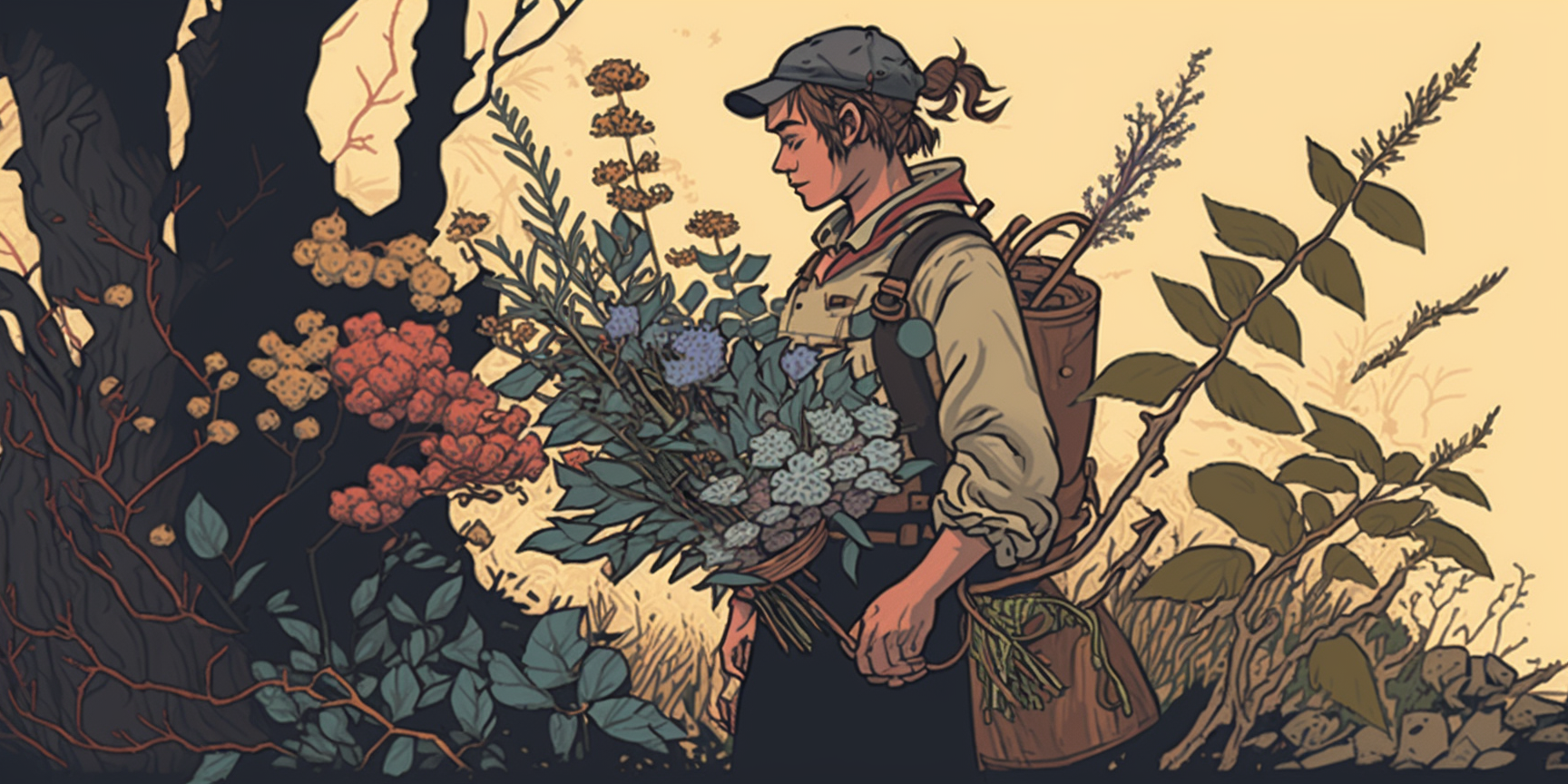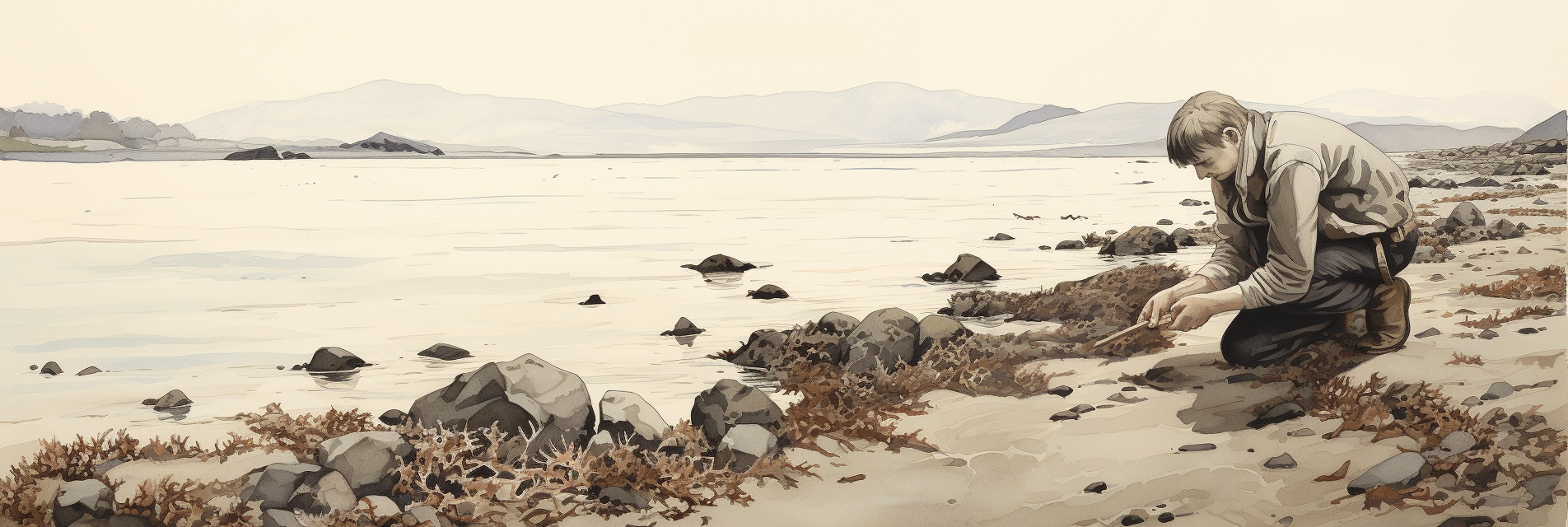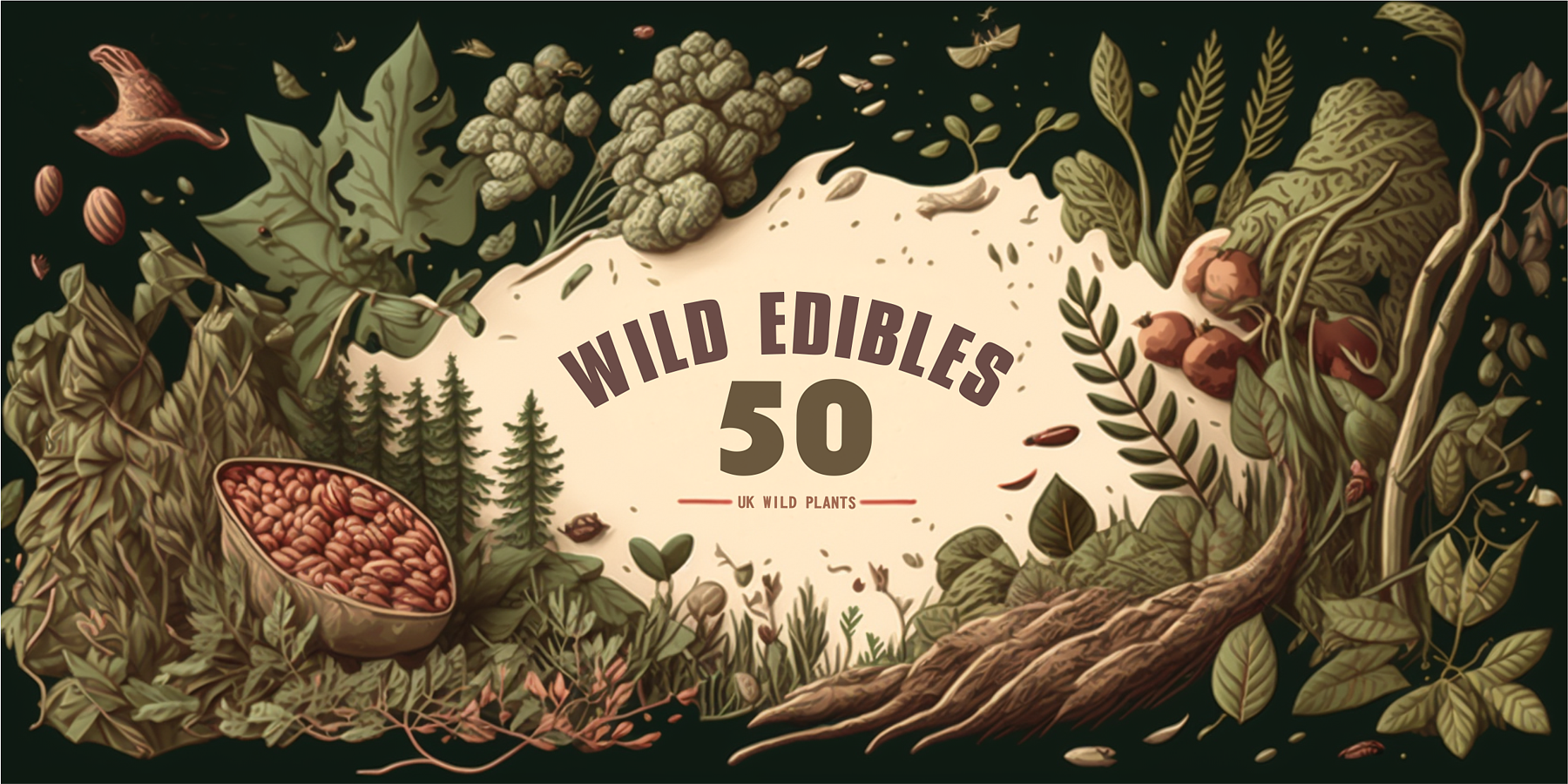
Foraging for the Future: Incorporating Wild Edibles into Your Emergency Food Supply
Foraging for the Future: Incorporating Wild Edibles into Your Emergency Food Supply
When thinking about emergency food supplies, our minds often turn to canned goods, freeze-dried meals, and other store-bought items. However, the natural world around us is abundant with wild edibles that can supplement and diversify our emergency food sources. In the UK, a vast array of plants, fruits, and fungi can provide essential nutrients during times of need. This article will explore how to incorporate wild edibles into your emergency food supply, offering practical advice on foraging, identification, and preparation.
- Learning the Basics of Foraging
Foraging is the practice of gathering wild plants and fungi for food, medicine, or other purposes. To begin incorporating wild edibles into your emergency food supply, you'll need to familiarise yourself with the basics of foraging. Invest in a quality guidebook or attend a workshop led by a knowledgeable expert to learn about the plants and fungi native to your area. Additionally, follow the principles of responsible foraging, which include obtaining permission to forage on private land, avoiding protected areas, and only taking what you need to minimise environmental impact.
For recommended reading resources and apps we suggest you visit Foraging for Food - A Useful Guide.
- Identifying Nutrient-Rich Wild Edibles
Focus on wild edibles that offer high nutritional value and grow abundantly in the UK. Some examples include:
- Nettles (Urtica dioica): Rich in vitamins A, C, and K, as well as iron, calcium, and protein.
- Dandelion (Taraxacum officinale): A source of vitamins A, C, and K, as well as potassium and antioxidants.
- Elderberries (Sambucus nigra): Contain vitamins A, C, and B6, as well as iron, potassium, and antioxidants.
- Hazelnuts (Corylus avellana): Provide healthy fats, protein, and essential minerals like magnesium and potassium.
Remember to positively identify any wild edibles before consuming them, as some plants and fungi can be toxic or inedible.
For a list of the some of the most abundant edible wild plants, we suggest you visit Edible Wild Plants: 50 of the the most common UK species.
- Preserving Your Foraged Finds
To incorporate wild edibles into your emergency food supply, you'll need to preserve them for long-term storage. Various preservation methods can be employed, such as:
- Drying: Ideal for herbs, mushrooms, and fruits like elderberries and blackberries.
- Canning: Suitable for fruits, vegetables, and even some foraged greens.
- Freezing: An excellent option for berries, fruits, and many leafy greens.
- Pickling: Works well for preserving wild garlic, samphire, and other edible plants.
- Experimenting with Wild Edible Recipes
Familiarise yourself with recipes that incorporate wild edibles, so you know how to utilise them in an emergency. This can include dishes like nettle soup, dandelion tea, and elderberry syrup. By experimenting with these recipes in advance, you'll be better prepared to make the most of your foraged finds when they become an essential part of your emergency food supply.
- Growing Your Own Wild Edibles
Consider cultivating some wild edibles in your garden or on your property. This can provide a readily available source of nutritious food in times of need. Plants like nettles, dandelion, and sorrel can be easily grown, and fruit trees or bushes, such as blackberries and hazelnuts, can provide an ongoing source of sustenance.
- Staying Safe and Legal While Foraging
It's important to follow UK laws and guidelines when foraging for wild edibles. The 1968 Theft Act allows foraging for personal use on common land but prohibits the uprooting of plants without the landowner's permission. Always seek permission before foraging on private land, and adhere to any local regulations or restrictions.
- Keeping a Foraging Journal
Maintaining a foraging journal can help you track the locations, seasons, and conditions under which you find various wild edibles. This information can prove invaluable during an emergency, enabling you to efficiently locate and harvest the plants and fungi you need.
- Building Community Knowledge
- Adapting Your Foraging Skills to Changing Seasons
Different wild edibles are available at various times of the year, so it's essential to adapt your foraging skills to the changing seasons. For example, spring brings an abundance of wild garlic and young nettles, while autumn is prime time for mushroom and nut foraging. By understanding the seasonal availability of wild edibles, you can better plan your emergency food supply throughout the year.
- Staying Aware of Environmental Factors
Keep in mind that environmental factors, such as pollution, can affect the quality and safety of wild edibles. Avoid harvesting plants from areas near busy roads, industrial sites, or other sources of contamination. Additionally, be aware of any pesticide or herbicide use in the area, as these chemicals can be harmful if ingested.
Conclusion
Incorporating wild edibles into your emergency food supply can provide a valuable source of nutrients and variety during times of need. By learning the basics of foraging, identifying and preserving nutrient-rich wild edibles, and sharing your knowledge with others, you can build a more resilient and self-sufficient food supply. Familiarise yourself with the diverse array of plants and fungi that grow in your area, and discover the benefits of incorporating these wild edibles into your emergency food preparations.
Suggested Articles
Foraging for Food - A Useful Guide
As a survivalist, one of the most important skills you can have is the ability to identify edible plants in the wild....
A Guide to Coastal Foraging in the UK: Edible Seaweeds, Shellfish, and Plants
Coastal foraging is an activity that combines the pleasure of being outdoors with the satisfaction of gathering your ...
Edible Wild Plants: 50 of the the most common UK species
Foraging for wild plants should only be done if you have a good understanding of the plants, as some may have poisono...




